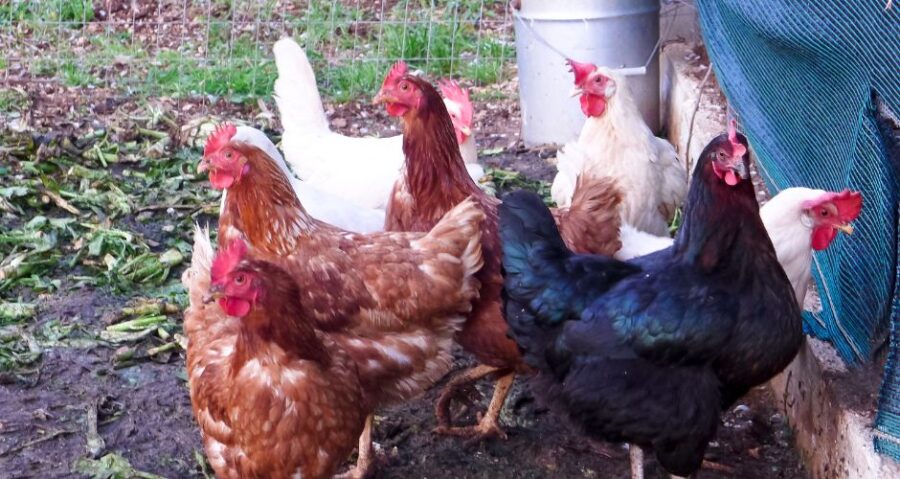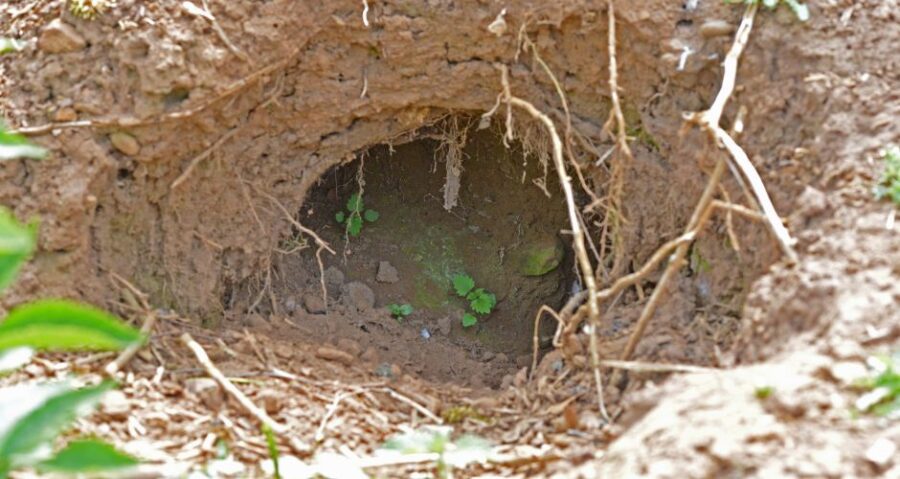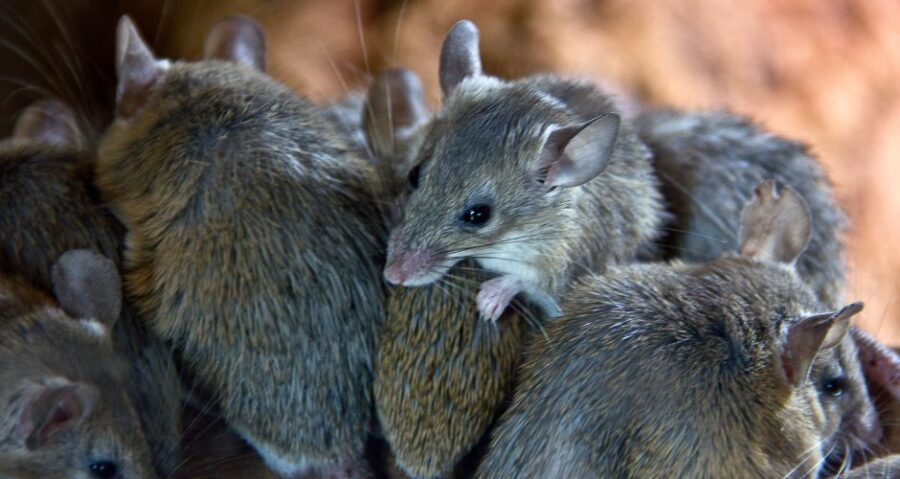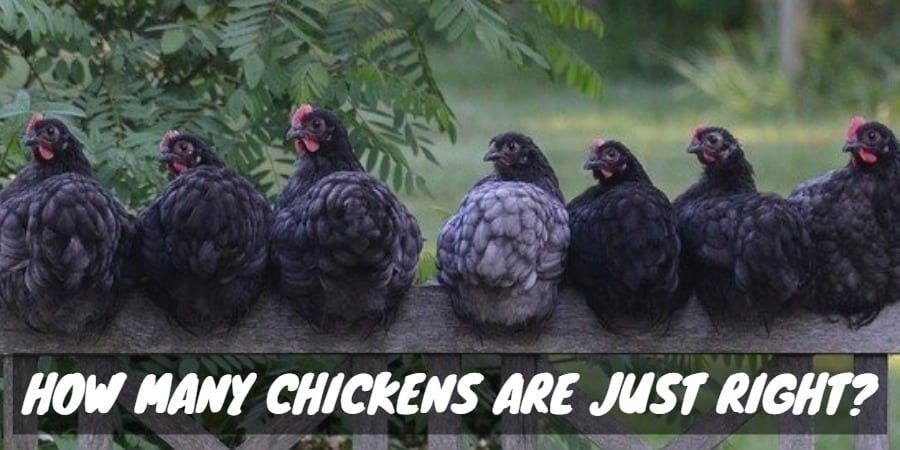
Whether it is the warmth and security of the coop, or continuous access to food and water, it’s not uncommon to encounter mice in your chicken tending journey.
And, while mice can be adorable and many people adore them as intelligent and low maintenance pets, having them become a frequent flyer in your hen house is a definite no-no.
Let’s talk about how to keep mice, and other rodents, out of your coop without dangerous traps and the use of poison.
Keep Mice and Other Rodents Out of the Coop
Seeing a mouse or two may seem like no big deal for your chicken coop but letting them stay can quickly become a nightmare for a backyard chicken tender.
Why Are Mice In the Coop Bad?
Plain and simple, mice carry disease.
The CDC has linked 11 common diseases with mice and rodents, six of which are considered contagious simply by inhaling the dust contaminated with their urine and faeces.
*yuck*
If that isn’t enough to deter you, mice and other rodents also pose a treat to your budget and your babies.
Mice and rodents will gladly nibble on your chickens food and enjoy the fresh drinking water. Depending on the number of mice present (and this rises rapidly when left unchecked), this can become a serious hit to your pocketbook.
Larger rodents, such as rats and weasels (don’t get me started on weasels!) can pose a much more serious threat to your flock as rats routinely eat young chicks and even eggs and a weasel can decimate a flock in a night.
How Do I Know if I Have Mice in the Coop?

While many people assume it’s easy to identify a mouse problem in your coop, for some, it is not as obvious.
For rustic chicken tenders, there may be little to no evidence of a couple stray mice. The problem may not actually become apparent until it is much more serious.
Here are a few things to look out for to prevent an infestation:
- Tunnels.
Mice dig 2″ – 3″ tunnels and can manage their way under fencing easily. Sure, you may not be horribly worried about a mouse tunnelling in, but it is important to note that said tunnels are also frequented by rats, weasels and even snakes.
These predators can pose a significantly more serious threat to your flock.
- Droppings.
If you’re like me. The idea that one would spot mouse poop in the coop is absurd. But, that is primarily because I would likely not be looking in the right spots.
Yes, it is most likely that the droppings would be close to the food but deciphering poop from sunflower seeds is not high on my priority list.
Other places to scan for scat would be along the joists of the coop and in the corners of the room. Mice prefer to travel safely along the walls as opposed to risking a mad dash through the centre of the coop, for obvious reasons and chickens will gladly make a snack of a mouse or two.
- Nests.
Mice will make a nest out of just about anything. These fluff balls build fluff balls to contain their names babies.
While a mouse will make a nest just about anywhere, they tend to prefer areas that are compact (if you stack firewood I’d say there is about a 95% chance that you’ll find a mouse house in there, especially if you season your stack), or locations that are high above risk.
- Damage to screens or wiring.
Mice need a way in. Yes, if your coop has just about any gap (mice can squeeze into an opening as small as a quarter of an inch) it’s possible for a mouse to get in.
Signs that they may be working their way in by means of anything but an existing opening would be damage to screens and wiring (for whatever reason, mice chew wires and somehow survive. Why is beyond me.)
Note: if you provide electricity to your coop and you find rodent activity, it is prudent to check your electrical for chew damage as such tampering with the wires poses a rather serious risk of electrical fire.
- Missing eggs (or baby chicks).
If you’ve noticed that you’re starting to miss eggs from consistent layers, and certainly if a chick disappears, it is very possible that you have a problem with rodents.
In any such case, if you find you have rodents, here’s how to get rid of them without dangerous traps or poison.
Getting Rid of Mice Without Traps or Poison

- Traps
Traps are probably the easiest way to start removing mice and other small rodents from your homestead.
You can pick up an excellent option on Amazon.
I wouldn’t recommend snap traps for a couple of reasons.
First, you’re going to use bait. If you know anything about chickens, you know that they will eat just about everything. It’s likely they would enjoy what you have for bait.
Chickens are also very fragile.
Snap traps can pose a serious threat to a curious hen who may get more than her toe or beak caught.
Second, because snap traps are designed to spring at even a light touch, it’s likely that the trap will be engaged without anyone having taken the bait.
Humane traps that house the mouse, like the one above, prevent large animals from taking the bait, prevent tipping and accidental engagement, and are … well … humane.
- Deterrents
Mice have an excellent sense of smell.
Planing fresh peppermint in pots around your coop can help to deter mice and rodents from entering.
**If you are not keen on planting peppermint because you have had the awful experience of trying to remove mint plants from your garden … regular drops of peppermint oil are good substitutes.**
Alternatively, sprinkling fox or coyote urine around the coop can provide ample deterrent for a mouse as the idea of such a predator is amply intimidating.
- Barn Cat
You may not be a “cat person” but hear me out, cats make wonderful mousers and can do extremely well as outdoor, barn cats.
Cats instinctually will hunt in the night, the time when most rodents are up and lively, they have incredible vision and can outrun a mouse with ease (did you know, mice run an average of nine miles an hour and a domestic house can can clock in at upwards of 30 miles an hour for short distances).
Keeping Mice Out of Your Chicken Coop
Now that you’ve gotten rid of the mice, it’s vital to keep them out.
Here are my top 3 suggestions for keeping mice out of your hen house.
- Seal up cracks and holes.
I know that I said mice can squeeze into a hole a quarter inch or more, and for many of the enthusiastic chicken tenders who use 1/4″ hardware cloth to make a Fort Knox chicken coop, that news was devastating … but …
Mice won’t squeeze into the hardware cloth, you’re still safe.
What they will look for is cracks around doorways, venting, the roof, and in siding.
- Store Food Out of the Coop or In a Secure Container.
Food is the leading draw for mice in your chicken coop.
Keeping food out of the coop or cleaned away regularly will go a long way to preventing mice problems.
If you do store food inside your coop, make sure to store it in a container that can not be chewed through. I suggest a metal garbage pail because they are large enough to hold a bag or two of feed and easy to keep clean.
- Build a raised coop.
If you have a small flock, a raised coop may be the perfect solution for the risk of rodents.
Raised coops are generally more secure that larger coops that are built on the ground. As we discussed, mice burrow and can burrow under and chew through wood flooring in a conventional coop.
Can’t My Chickens Catch the Mice?
That’s a great question!
You’re absolutely right that chickens will eat mice, they are omnivores after all, and I’ve seen my ladies chase a vole a time or two, but … chickens don’t make the greatest mousers.
The main reason being, the two don’t often find themselves out and about at the same time of day.
Chickens are daytime animals and have extremely poor vision in the dark (check out more Can Chickens See in the Dark).
Mice, on the other hand, are nocturnal … they also have poor vision but that doesn’t matter when the chickens are all asleep on their perch.
Conclusion
The saying holds true when it comes to mice and your coop, an ounce of prevention is worth a pound of cure.
It’s far easier to keep mice out of your coop than it is to get rid of them in a humane way.
The best thing for a backyard chicken tender to do is to maintain a mouse free coop and run and frequently check for unwanted guests.
And, if you find yourself in a situation with the odd recurring mouse, keeping humane traps in the coop and run, checking on them periodically, will help to manage any lingering population and mitigate the risk of an infestation.




